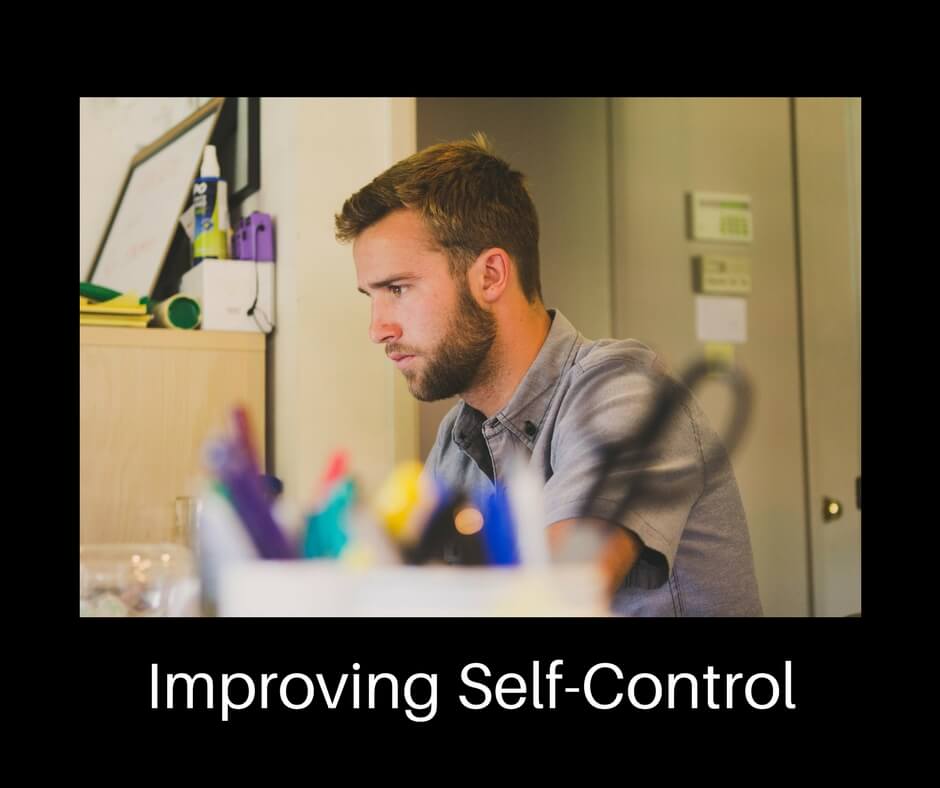Self-Control
Being able to freely choose one’s thoughts, words and actions in any given circumstance requires self-control.
Self-control can be described as the ability to wilfully respond to any situation in a manner that will protect goal attainment and/or obtain the best possible short-term and long-term outcome.
The ability to control oneself is dependent upon one’s executive function capacity.
Executive functions is the name given to the mental processes which enable an individual to consciously and effortfully override instinctual or habitual responses to stimuli, and instead produce a self-determine response in order to attain short-term and long-term goals. To learn more about executive functions please go here.
That is, in order to exercise self-control an individual must pause (rather than react directly to a stimulus), and:
- turn their attention inwards
- pay selective attention to their internal and external states
- self-sooth (if uncomfortable emotions have been triggered or they choose to delay gratification)
- inhibit intrusive external stimulus (i.e. sights, sounds, sensations) and internal stimulus (i.e. thoughts, feelings)
- recall information (i.e. one’s deep motivators, the social expectations of others, rules and guidelines, past responses [their own and others] to similar situations and the subsequent consequences of these responses
- analyse this information, generate and play with ideas, and contemplate the future
- choose an appropriate self-determined response (thoughts, words, actions).
ADHD and Self-Control
Individuals with the ADHD (especially the hyperactive/impulse component) tend to react in direct response to a stimulus due to their poor executive function, which robs them of the ability to pause and to perform the self-directed actions involved in self-control as described above.
As a result, they may act impulsively without anticipating the consequences, struggle to delay gratification and experience difficulties regulating their emotions.


For example, adults with ADHD may:
- unintentionally interrupt or offend others, participate in perseveration (talking about a subject of immense interest to them for a great length of time without any concern about the reaction of the listener), invade another person’s personal space, etc.
- be prone to emotional outbursts (i.e. anger, aggression, over excitement)
- fail to complete tasks or meet social or workplace expectations, get into financial difficulties, acquire driving infringements, struggle to have boundaries around social media use, etc.
- ruminate and be prone to negativity.
Improving Self-Control
ADHD medication strengthens self-control capacity by making it easier for an individual with ADHD to pause and use their executive functions to wilfully decide how to respond or act in response to a stimulus.
Self-control capacity alone, however, does not always result in the best outcomes. In order to protect goal attainment and/or obtain the best possible outcome in any situation, individuals with ADHD also benefit greatly from learning how to consciously and effectively use the self-control capacity their medication provides.
For example, adults with ADHD can:
- Develop strategies that remind them to pause, as pausing before responding decreases the chance of reacting impulsively. Some ideas for strategies include deep breathing, visualising one’s lips staying closed, walking away, paraphrasing the other person’s statement before responding. Practicing meditation and mindfulness may also improve the ability to pause.
- Get to know how their unique brain works, their strengths and their challenges.
- Explore where their self-control causes them the most problems so they can pre-empt situations and plan their response. For example, if they are impulsive, rather than responding to a request straight away they could practice saying “I’ll get back to you.” If they know a particular person triggers them they can plan to avoid them or to self-soothe by repeating a calming phrase in their mind. If they know they get distracted whilst completing written tasks they can set frequent reminders that prompt them to check in on themselves so they stay on track.
- Use visual prompts that remind them of their goals, what is important to them and what motivates them. Additionally, they can break big tasks into pieces, develop a plan of action and make time visible.
- Practice being kind to themselves and show themselves compassion.
- Drop the need to be perfect and allow themselves to be human – all humans make mistakes.
- Remind themselves, if they make a social blunder, that rupture and repair is a normal part of relationships, and apologise, forgive themselves and move on.
- Find an accountability buddy or work with an ADHD Coach who can support them and keep them on track through the process of embracing their strengths, understanding their challenges and finding strategies that assist them to increase their self-control.
- Celebrate their wins, no matter how small.
Please remember:
- According to the research, ADHD medication is the most effective means of improving the self-control capacity of individuals with ADHD, whilst strategies such as those discussed above can assist an individual make better use of this capacity.
- Everyone is individual, therefore a strategy that works for one person with ADHD may not work for another.
- The ADHD brain is wired for interest; therefore, strategies an individual personally finds appealing or interesting are more likely to work for them.
- Being flexible and open to making changes to the strategies they use can assist individuals to maintain their interest.
References
Barkley, R.A. (2015). Attention Deficit Hyperactivity Disorder: A Handbook for Diagnosis and Treatment, 4th ed. New York: Guilford Publications.
Barkley, R.A. (2010). Taking Charge of Adult ADHD. New York: Guilford Publications.

